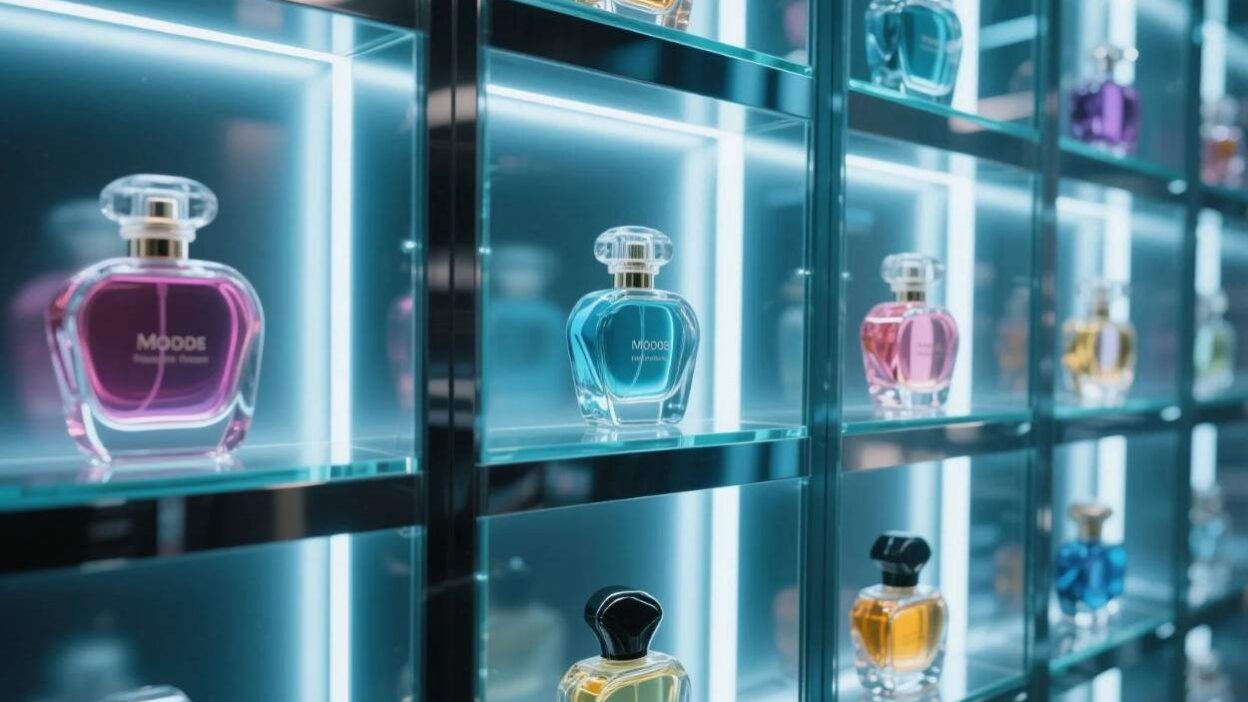Scent That Speaks to Your Soul
The Scent of You—Redefining Fragrance for the Personalized Era
In a world where “personalization” is the new luxury, fragrance has remained surprisingly static. Most perfumes are one-size-fits-all creations, blending fixed notes to appeal to broad audiences. But what if your perfume could evolve with your mood? What if it could mirror your joy, calm, or even the nostalgia of a childhood memory? Enter AI-generated personalized perfumes—a revolutionary fusion of machine learning, olfactory science, and emotional intelligence. By translating your unique mood into a bespoke scent, these fragrances are transforming how we connect with ourselves and the world around us. This report explores how AI is crafting scents that feel like a second skin, and why they’re poised to redefine the fragrance industry.
The Problem with Traditional Perfumes: Static Scents for Dynamic Lives
Traditional perfumery is an art of balance—blending top, heart, and base notes to create a cohesive aroma. Yet, for most people, a “signature scent” is a fixed choice, unchanged for years. This rigidity misses a critical truth: moods are fluid. A morning commute might call for invigorating citrus, while an evening with friends demands warm, cozy amber. A perfume that can’t adapt feels incomplete, like a song stuck on repeat.
Moreover, mass-produced fragrances often prioritize broad appeal over personal resonance. They’re designed to “work for everyone,” which rarely means “working brilliantly for you.” The result? A $400 billion global fragrance industry (per Grand View Research) that leaves many feeling their scent doesn’t truly represent them.
AI-generated perfumes solve this by putting you at the center. By analyzing your mood, preferences, and even biometric data, these fragrances craft scents that are as unique as your fingerprint.
How AI Generates Mood-Based Perfumes: The Tech Behind the Scent
Creating a perfume that adapts to your mood is no small feat. It requires merging cutting-edge AI with the science of olfaction. Here’s how it works:
1. Mood Detection: Understanding Your Emotional State
AI starts by decoding your mood. This can happen through:
- Self-Report: Users input their mood (e.g., “excited,” “calm,” “nostalgic”) via a mobile app.
- Biometric Data: Wearables (smartwatches, fitness trackers) or apps analyze heart rate, skin temperature, or voice patterns to infer mood (e.g., a racing heart might signal stress).
- Contextual Cues: Location (e.g., “at the gym”), time of day, or social media activity (e.g., a happy post) can hint at your mood.
For example, the app Scentee uses AI to analyze a user’s voice tone during calls to gauge mood, then recommends scents like “sunrise citrus” for upbeat moments or “lavender calm” for stress.
2. Scent Synthesis: Translating Mood into Molecules
Once a mood is identified, AI generates a scent profile by:
- Database of Scents: Drawing from a library of 10,000+ fragrance molecules (e.g., citral for citrus, vanillin for vanilla), AI selects notes that align with the target mood.
- Machine Learning Models: Trained on millions of scent-mood pairings (e.g., “rose” = romantic, “cedarwood” = grounding), the model predicts which combinations will evoke the desired emotion.
- Chemical Modeling: AI simulates how molecules interact with the olfactory receptors, ensuring the scent is not just “nice” but emotionally resonant.
Startups like Olfaction Lab use generative adversarial networks (GANs) to create unique scent blends. For instance, a user inputting “nostalgic” might receive a blend of “childhood candy” (vanilla, caramel) and “fresh linen” (linen absolute), tailored to their personal memories.
3. Delivery: Scent That Adapts in Real Time
AI-generated perfumes aren’t just static blends—they’re dynamic. Some systems use:
- Smart Diffusers: Connected to apps, these devices release scent in real time based on mood changes (e.g., a “focus” mode for work, “relax” mode at bedtime).
- On-Demand Sprays: Portable devices (like Aroma Shooter) let users spray a quick burst of their current mood scent.
The Benefits: Why Mood-Based Perfumes Are a Game-Changer
1. Emotional Resonance: Scent That Feels Like You
A perfume that mirrors your mood creates a visceral connection. Imagine:
- A first date: Your AI perfume detects “excitement” and releases a blend of bergamot and jasmine, making you feel confident and approachable.
- A tough day: It senses “stress” and emits lavender and sandalwood, calming your nerves.
This emotional synergy turns fragrance from a “nice smell” into a personal ritual.
2. Sustainability: Reducing Waste, Elevating Value
Mass-produced perfumes often end up in landfills, with 30% of bottles unused within a year (per Nielsen). AI-generated perfumes, by contrast:
- Minimize Overproduction: Brands produce only what’s needed, reducing waste.
- Extend Lifespan: Users can refresh their scent with small, on-demand refills instead of buying full bottles.
3. Inclusivity: Fragrance for Everyone
Traditional perfumes cater to narrow preferences (e.g., “floral” or “woody”). AI opens the door to:
- Niche Preferences: Scents for “bookworms” (paper, cedar) or “adventurers” (earthy, spicy notes).
- Cultural Relevance: Blends inspired by a user’s heritage (e.g., “tropical mango” for Caribbean roots, “saffron” for South Asian traditions).
4. Therapeutic Potential
Research shows scent profoundly impacts mental health. AI-generated perfumes could:
- Alleviate Anxiety: Release calming scents (e.g., chamomile, ylang-ylang) during panic attacks.
- Boost Productivity: Emit energizing notes (e.g., lemon, peppermint) to combat midday slumps.
Challenges: Navigating the Scent of the Future
While promising, AI-generated perfumes face hurdles:
1. The Complexity of Human Olfaction
Humans detect ~1 trillion scents, but AI models struggle to map the nuance of mood to scent. For example, “joy” might mean citrus for one person and floral for another. Training models to capture this subjectivity requires vast, diverse datasets.
2. Data Privacy
Mood detection often relies on personal data (e.g., voice, location). Brands must ensure strict encryption and user consent to avoid misuse.
3. Cost and Accessibility
Developing AI scent models and smart devices is expensive. Early adopters (luxury brands, tech-savvy millennials) may embrace it, but mass adoption depends on lowering costs.
4. Regulatory Scrutiny
Fragrance ingredients are tightly regulated (e.g., the FDA bans harmful chemicals). AI-generated scents must pass safety tests, which can slow innovation.
Real-World Innovators: Pioneering the Scent Revolution
- Olfaction Lab (UK): This startup uses AI to create “mood perfumes” for brands like Jo Malone and Diptyque. Their platform lets users input moods, and within 48 hours, they receive a custom 10ml vial.
- Scentee (Japan): A pioneer in “scent communication,” Scentee’s app connects to smart devices to release scents based on messages (e.g., a loved one’s “hello” triggers a rose scent).
- Aroma Chem (USA): Focused on therapeutic scents, Aroma Chem uses AI to design blends for stress relief, sleep, and energy, partnering with wellness brands like Calm.
The Future: Scent That Evolves With You
The future of AI-generated perfumes is limited only by imagination:
- Collaborative Creation: Users and AI could co-design scents, with users selecting notes and AI suggesting pairings.
- Neurological Integration: Brain-computer interfaces (BCIs) might one day read neural activity to predict moods, creating scents that respond to subconscious emotions.
- Sustainable Sourcing: AI could optimize ingredient sourcing (e.g., using lab-grown fragrance molecules to reduce reliance on rare plants).
Fragrance as a Mirror of the Self
AI-generated perfumes are more than a technological novelty—they’re a revolution in self-expression. By translating moods into scents, they turn fragrance into a dynamic, personal companion. As the technology matures, these perfumes won’t just smell good—they’ll feel like you.
In a world where individuality is celebrated, why settle for a scent that’s “good enough”? It’s time to let your fragrance speak for you—one mood at a time.



